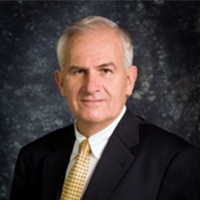Big Run Felony Lawyer, West Virginia
Not enough matches for Big Run Felony lawyer.
Below are all Big Run Criminal lawyers.
William C. Brewer
✓ VERIFIEDDivorce & Family Law, Medical Malpractice, Litigation, Criminal, Accident & Injury
Some Trial Lawyers Say They Have Experience. We Actually Do.
Legal challenges require top-level experience and skill. That’s why individuals and businesses in West Virginia (WV) turn to attorney William C. Bre... (more)
Sean Thomas Logue
✓ VERIFIEDCriminal, DUI-DWI, Traffic, Felony
Serving Clients in the Greater Pittsburgh Area and West Virginia
Sean Logue is a diligent attorney who excels at representing people who have been charged with criminal and traffic offenses in Pennsylvania. He const... (more)
Kendra L. Bunn
✓ VERIFIEDWhite Collar Crime, Education, Immigration, Employment, International
Since 1999, Ms. Bunn has dedicated her entire career to the practice of immigration law. She was one of the first female attorneys to practice immigra... (more)
Trena Williams
DUI-DWI, Domestic Violence & Neglect, Mediation, Social Security -- Disability
Status: In Good Standing
FREE CONSULTATION
CONTACTWesley W. Metheney
Mass Torts, Chemical & Cosmetics, Criminal, Bed Bug, Mesothelioma
Status: In Good Standing
J. Michael Benninger
Criminal, Federal Trial Practice, Mental Health, Legal Malpractice
Status: In Good Standing
Neal Jay Hamilton
Real Estate, Divorce & Family Law, Criminal, Accident & Injury, Child Support
Status: In Good Standing Licensed: 42 Years
Gary J. Martino
DUI-DWI, Misdemeanor, Car Accident, Felony, Workers' Compensation
Status: In Good Standing




